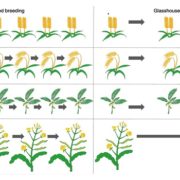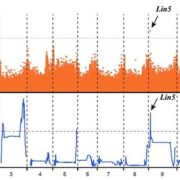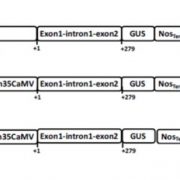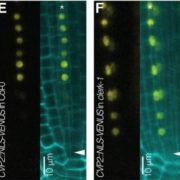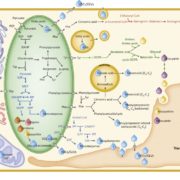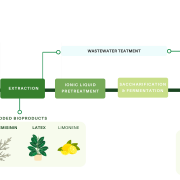A family of small, cyclic peptides buried in preproalbumin since the Eocene epoch (Plant Direct)
 Small cyclic peptides are produced in many organisms; some are produced by ribosomes and others not. Fisher et al. explore a class of small cyclic peptides known as orbitides, which have been identified in plants of Asteroideae subfamily of the plant family Asteraceae. The fact that these are abundant in but restricted to a single subfamily suggests that they evolved approximately 45 million years ago. The 5- to 12-amino acid long orbitides are ribosomally synthesized as part of a larger protein that also includes the seed-storage protein albumin. The authors previously used a transcriptomic approach to identify orbitide-encoding transcripts. In this work they sequenced the orbitides using liquid chromatography–coupled tandem mass spectroscopy (LC-MS/MS), and used NMR to determine the structures of several of them. In spite of the fact that many small cyclic peptides show antimicrobial activity, those in this study did not. (Summary by Mary Williams) Plant Direct 10.1002/pld3.42
Small cyclic peptides are produced in many organisms; some are produced by ribosomes and others not. Fisher et al. explore a class of small cyclic peptides known as orbitides, which have been identified in plants of Asteroideae subfamily of the plant family Asteraceae. The fact that these are abundant in but restricted to a single subfamily suggests that they evolved approximately 45 million years ago. The 5- to 12-amino acid long orbitides are ribosomally synthesized as part of a larger protein that also includes the seed-storage protein albumin. The authors previously used a transcriptomic approach to identify orbitide-encoding transcripts. In this work they sequenced the orbitides using liquid chromatography–coupled tandem mass spectroscopy (LC-MS/MS), and used NMR to determine the structures of several of them. In spite of the fact that many small cyclic peptides show antimicrobial activity, those in this study did not. (Summary by Mary Williams) Plant Direct 10.1002/pld3.42


